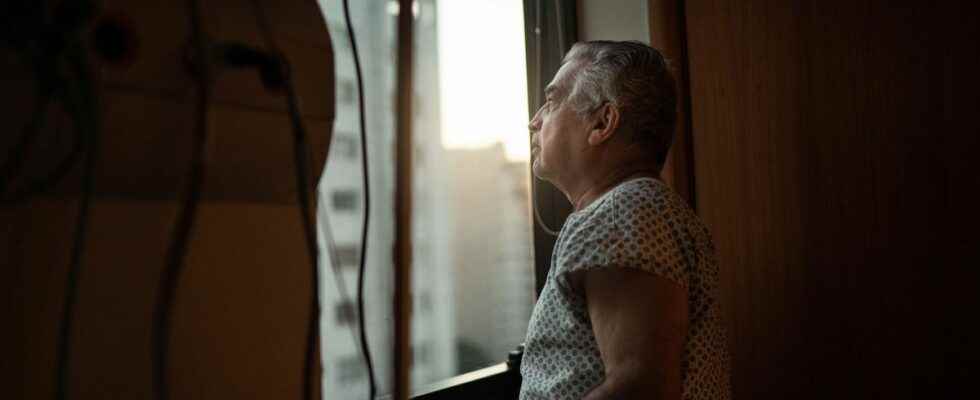Published on
Updated
Reading 3 mins.
Very limited outings, intrusion, physical restraint… A report published on Thursday reveals “serious malfunctions undermining the dignity of patients and their fundamental rights” within a public mental health establishment in La-Roche-sur-Yon .
New thunderclap in the psychiatric environment. Six controllers alerted the public authorities to the excesses and illegal practices carried out within a public mental health establishment, concerning “violations of the fundamental rights of hospitalized persons“.
“Patients, even admitted to free care, cannot come and go freely”
In psychiatry, coercion to care, isolation or restraint (the fact of being attached) must be used as a last resort. Except that in reality, the urgency, the lack of means and the lack of personnel tend to trivialize these practices.
This was noted by the Comptroller General of places of deprivation of liberty, Dominique Simonnot within the public mental health establishment, in Vendée. In its report, published Thursday, October 26, it denounces “a significant number of serious malfunctions affecting the dignity of patients and their fundamental rights“.
“Patients, even admitted to free care, cannot come and go freely“, can we thus read. “The protection of the physical integrity and privacy of patients is not ensured“, specify the experts, giving the example of “three geriatric psychiatry units” (100 beds) where “patients cannot lock their room or sanitary area“.
Moreover all the doors of the rooms are pierced “a non-hidden opening allowing you to observe the interior of the bedroom from the hallway“, notes the report.
In addition, several patients complained “the intrusion of other patients into their room” and “expressed feelings of insecurity“.
Often illegal isolation and restraint measures
The same goes for isolation and restraint measures, which are often inappropriate and not always taken by a psychiatrist.
“Isolation decisions are too often unfounded and their motives illegal. Many isolation decisions are made for 24 hours, while the law limits the initial duration of the measure to 12 hours.“.
Finally, these measurestake place regularly in non-dedicated spaces and outside any legal framework, for minors and adults“.
Observations, which do not surprise Mathieu Bellahsen, former head of the Asnières unit of the Roger-Prévot-de-Moisselles hospital and co-author of “The revolt of psychiatry, responses to managerial catastrophe“.
“Today’s psychiatric model is problematic: it is centered on research and drugs… and not enough on the human.”
A real lack of caregivers
If none of the deviations mentioned above is justifiable, the report notes, however, that the hospital meets “very serious human resources difficulties“A total of 18 psychiatrist and 40 nursing posts are vacant.
A lack of staff, which has a direct impact on patients, “often seen in a hasty manner during interviews which may last less than five minutes“.
Furthermore, “a large number of caregivers complain that they are not sufficiently trained to provide information to patients“in care without consent.
A reorganization is underway
Faced with these revelations, the management of the establishment reveals in a press release that it has established an action plan. This plan includes “corrective measures”, several of which have already been implemented, and others which will be “by the end of the first half of 2023“.
François Braun for his part assured that “measures relating to the protection of the physical privacy of patients have been taken” and “other measures relating to the rights of people hospitalized without their consent have been taken“.
But for Mathieu Bellahsen, these measures are not enough.
“To counter the shortage of personnel, a strong investment in favor of the psychiatric hospital is necessary. Then, it is necessary to train the caregivers” he assures. “As for the patients, they must be listened to more. Their rights and their freedoms must be respected… because today, it is the opposite: maintaining the safety of the sick and locking them up in an abusive manner in their rooms is better “perceived” than the fact of suffering runaways. But this very asylum tendency must stop; the psychiatric hospital must no longer act outside the common law. For that, the government must follow, and for the moment it is not relevant.
